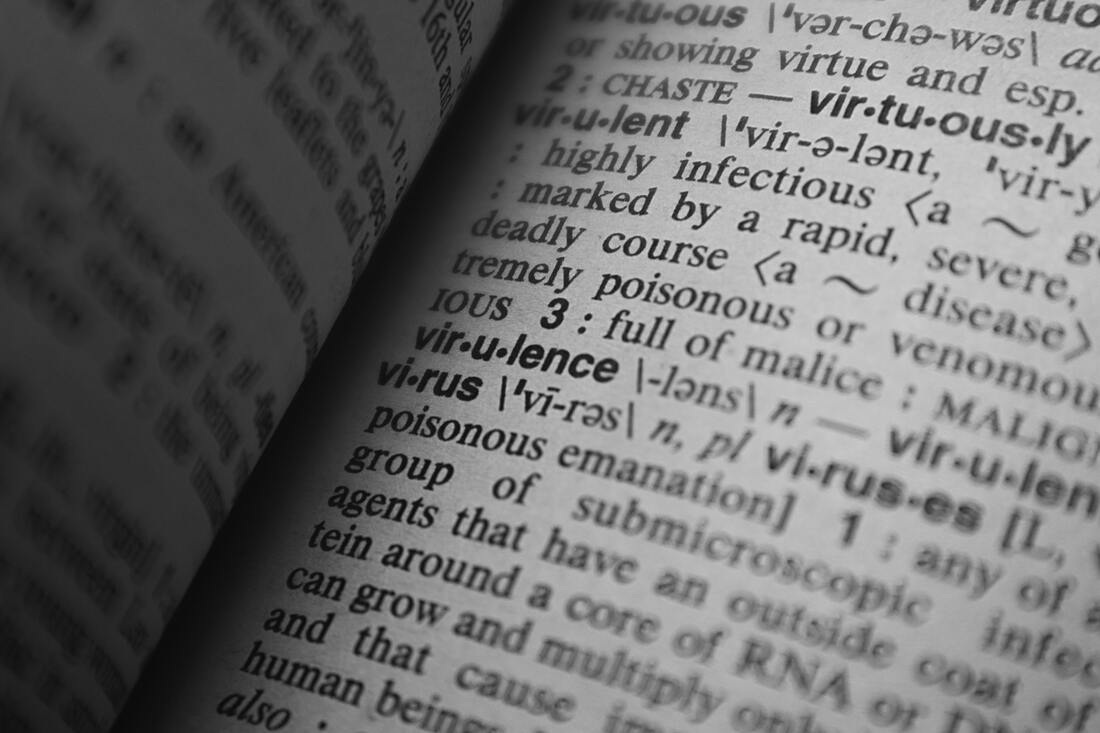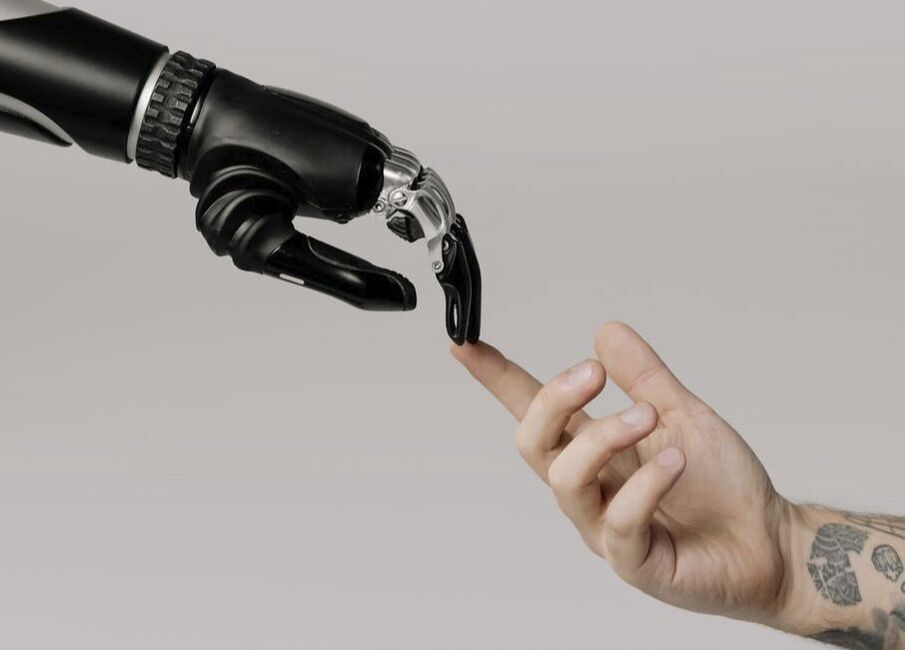|
Last week, we talked about the film, Avatar, and how it is essentially an intergalactic retelling of the indigenous genocide that has happened repeatedly in society's history. Midway through writing that post, I found myself off on a tangent about language. After a half-hour of writing, I realized the whole diatribe was a separate idea that deserved to be treated in its own post, so I clipped it and saved it for this week.
The point: The language we use to talk about people can serve either to bring us together or push us apart. This othering language is clear in Avatar, but it's also present in many other spaces. I probably wouldn't have known to frame it in this way if I hadn't recently read Brené Brown's post on dehumanizing language, but now that I've seen it I notice it everywhere. Listen to how the Colonel describes the Na'vi in the film. He uses words like savages and blue monkeys, summarizing their customs by saying, "We tried to give them medicine, education, roads, but they like mud." The purpose of using this kind of language is to dehumanize the enemy so you feel better about doing all the horrific things you're about to do to them. In the context of the film, the Colonel needs to other the native population in order to feel justified in forcing them out of the area, destroying the land they call home, and ultimately killing them. The more he separates the Na'vi from the humans, the more the rest of the team is encouraged to do the same, and the more easily they can convince themselves their mission is acceptable - nay, laudable. But, of course, this tactic reaches much farther than a little film from twelve years ago. Colonizers and enslavers consistently used this kind of dehumanizing language to view those they systematically murdered and forced out of their homes as less than human. If the "Indians" were "savages," if Africans were "primitive," if these people could be seen as animals incapable of reasoning rather than strong humans with a sophisticated religious and social structure (albeit different from what the Europeans were used to) then it would be easier to conquer them using otherwise unthinkable actions. As Michelle Maiese (quoted by Brown in the above article) says, this has the effect of making others "seem less than human and hence not worthy of humane treatment." The colonizers died hundreds of years ago, but this kind of othering language and imagery extends in both directions. From biblical interpretations that dehumanize members of the LGBTQIA+ community, to Nazi propaganda that showed Jews at rats, to our former president's use of words like "dog," "animal," and "infest" to describe his opponents or immigrants, to the language used by people in some online groups like "libtards" and "lemmings," we use this language either consciously or unconsciously to separate our targets from ourselves. And it's become ever easier to do this in the age of the internet, when we can sling insults back and forth without even having to look people in the face. This type of shorthand only serves to drive further wedges between us and the people who don't share our beliefs. In these fraught times, particularly in the USA but also in many other parts of the globe, we are in real danger of shriveling into self-contained pods with no meaningful contact, each viewing the others as less than human - thus fueling a self-feeding cycle of dehumanization and misunderstanding. How can we get out of this dilemma? The same way we got into it: Language. Recognize when you or someone else is using words that serve to separate another group from yours. Change your framework. Consider that most people are doing the best they can, making the best decisions they know how, with the information they have. Seek to understand people who are different from you, and help them understand you and the experiences that have shaped your beliefs. Even if you think you know what they're all about, and even if you are certain neither of your beliefs will change, it's likely that by asking and answering questions, you'll learn more about the wide range of experiences people in this world have. Chances are good that you'll both walk away with a more human view of the other. And this is what we need more of in this ever-evolving, interconnected world. Not more hatred and alienation. More understanding, please. More humanity. I promise, we'll all be better for it.
2 Comments
From "test-tube babies" to mechanical wombs, how will we know when medical technology has gone too far?
This question came up while researching for my novel, The Other Women. Generally, ideas for my writing come to me as "What-if" questions. I'll notice something out in the world, and I'll wonder about it. And if my wondering takes me far enough, I'll know I've got a story. For this particular book, the idea of mechanical wombs, or what I call nursery wombs in the book came up as the central idea. Here's an example of my thought-ramblings as I unraveled the idea: What if there were a way to keep tabs on a developing baby? It would have to be an implant of some sort. I wouldn't want that kind of implant. But, wait. What if it were possible to grow babies in artificial wombs, so you could watch life as it unfolds and be certain the process is going along flawlessly? Surely that's going to be a thing at some point. And what if they were so commonplace that you could have one right in your nursery at home? You could insert a cartridge with the perfect combination of your and your partner's DNA, and you could watch the miracle of life unfolding together. Man, that would alleviate a lot of complications - maternal death would be zero. Birth would be predictable. Everything would be monitor-able. So... what if these nursery wombs became the only way people ever had children? What if the government mandated it? And so began my journey - or, I should say, Lucinda's journey. And Ruma's, and Evie's, and all the other characters in the book. Torn between wanting to know what was going on inside my own body at every moment and wanting the ability to carry my own children, I created a world where that same tension existed in a different form. I began researching the advancements that have been made in reproductive technology, and then extending them beyond today on what I assumed (based on nothing whatsoever) would be a logical time frame. (Make sure you're a VIP so you can get this projected timeline delivered right to your inbox tomorrow!) And then, even as I researched and wrote the book, breakthroughs kept happening to support my premise: nursery wombs will be a thing. Probably sooner than we think. But where will be the line of propriety, of ethical use? What will be the nature-technology balance, especially if this kind of thing comes to be seen as superior to, or safer than, the way we do things nowadays? I promised last week I'd come back around to the question of why we would want or need mechanical wombs to begin with. I'm sure you can think of a reason or two, but I'll outline some here:
After they've been used successfully and proven safe, why wouldn't society want more of them? And in places where medicine is socialized, why wouldn't the government want things to be safer and more predictable? First, maybe there will be incentives for using the nursery wombs. But later, when most of the population is already using them, what would be the harm in mandating them? Who wouldn't want their child, their partner, or themselves to be safe and free of natural childbirth and all it entails? I could see it happening. How about you?
I've been wrestling with the question of human evolution for a while now. It's a thought exercise that came up while I was researching and writing my novel, The Other Women.
Natural evolution is an inconceivably slow process. It takes basically forever for nature to work out what traits will work best on a given organism in a given environment. I was going to insert some really interesting factoids here about how long it took things like prehensile tails and marsupial pouches to evolve, but the truth is that this stuff happens so slowly and incrementally, there's really no clear answer to those questions. Just think how many iterations nature went through before we humanoids developed the ability to walk fully upright as we do. Gradually that happened, over millions and millions of years. 
But technology has changed all that.
Technological advancements have already allowed humans to survive and thrive in areas where they would otherwise perish - if they even managed to get there at all - and many of us wouldn't be here if not for medical advancements made in the last hundred years. Things that would sound like science fiction to our grandparents are commonplace today. For example, a third of U.S adults report that they or someone they know has used fertility treatments, according to the Pew Research Center. More than 250 million courses of antibiotics are prescribed annually. Six-hundred-fifty thousand patients take chemotherapy each year, according to the CDC. This is just a short sampling of the ways medical technology has created and sustained life where, before, there would have been none. All this is possible today, and there is no end to the potential for innovation in coming years. Which makes me wonder: Where is the line? What is the limit? How will we know when enough is enough? I read an article in the Times a few months back that I found at once fascinating and altogether unsurprising: Scientists Grow Mouse Embryos in a Mechanical Womb. Science did that. Scientists took embryos out of a mama mouse, put them into mechanical wombs, and grew them for a week or so with no incident. It's a pretty low-level process compared with growing a whole human baby in one of those things, but I can almost guarantee you that's on the horizon. Why would we want to grow a human baby in an artificial womb? Lots of reasons, which I'll get to in the Newsletter (where I'll share some of the reproductive technology research I put together before writing the The Other Women) and in next week's post. What's important for this conversation is the likelihood that, eventually, it will happen. And when it does, after a while, it might feel just as commonplace as in vitro does today. A hundred years ago, cancer was a death sentence. If a person was unable to conceive a child naturally, they were destined for other avenues of parenthood, or not. An infection that's easily treatable with today's medications had a pretty good chance of killing you. While some of us are naturally inclined (*raises hand*), I don't think there are many of us who would prefer these outcomes. We use technology to help us survive, and while we do evolve socially, technology does much of the physical adaptation for us. Advancements in science, technology, and medicine have progressed our society at light speed over the last century compared with other time periods in history. But does that mean we've given our evolution over to technology? How has technology changed the meaning of the term "evolution"? How might it continue changing in the coming decades? I'd love to know your thoughts; just comment below! |
Nicci KadilakI'm the boss around here.
Archives
January 2023
Categories
All
|




 RSS Feed
RSS Feed